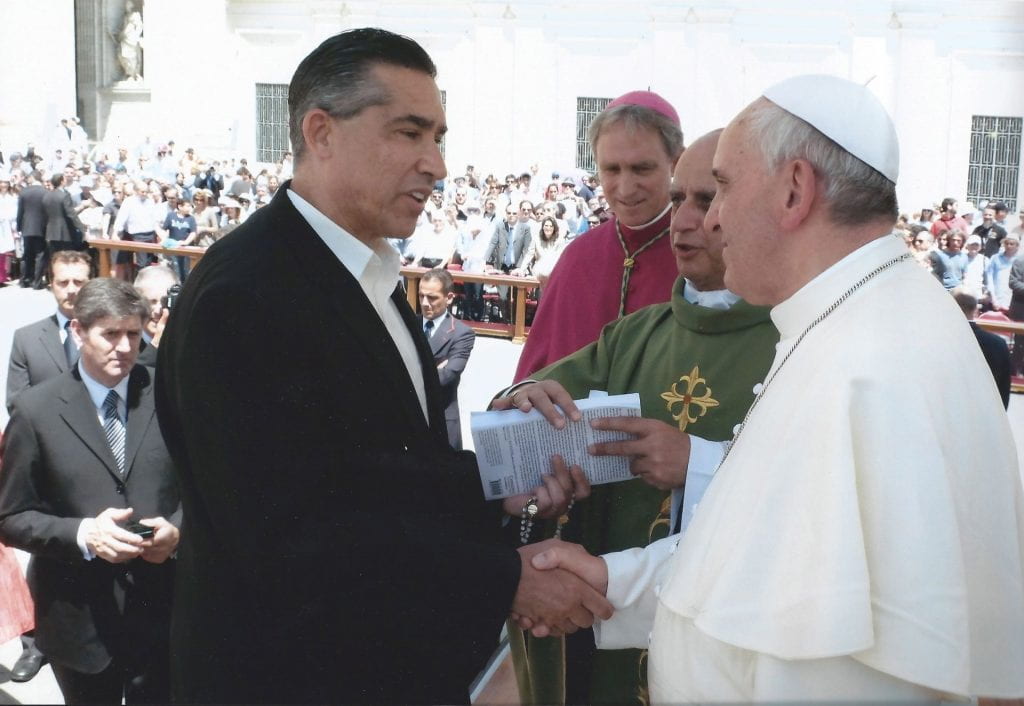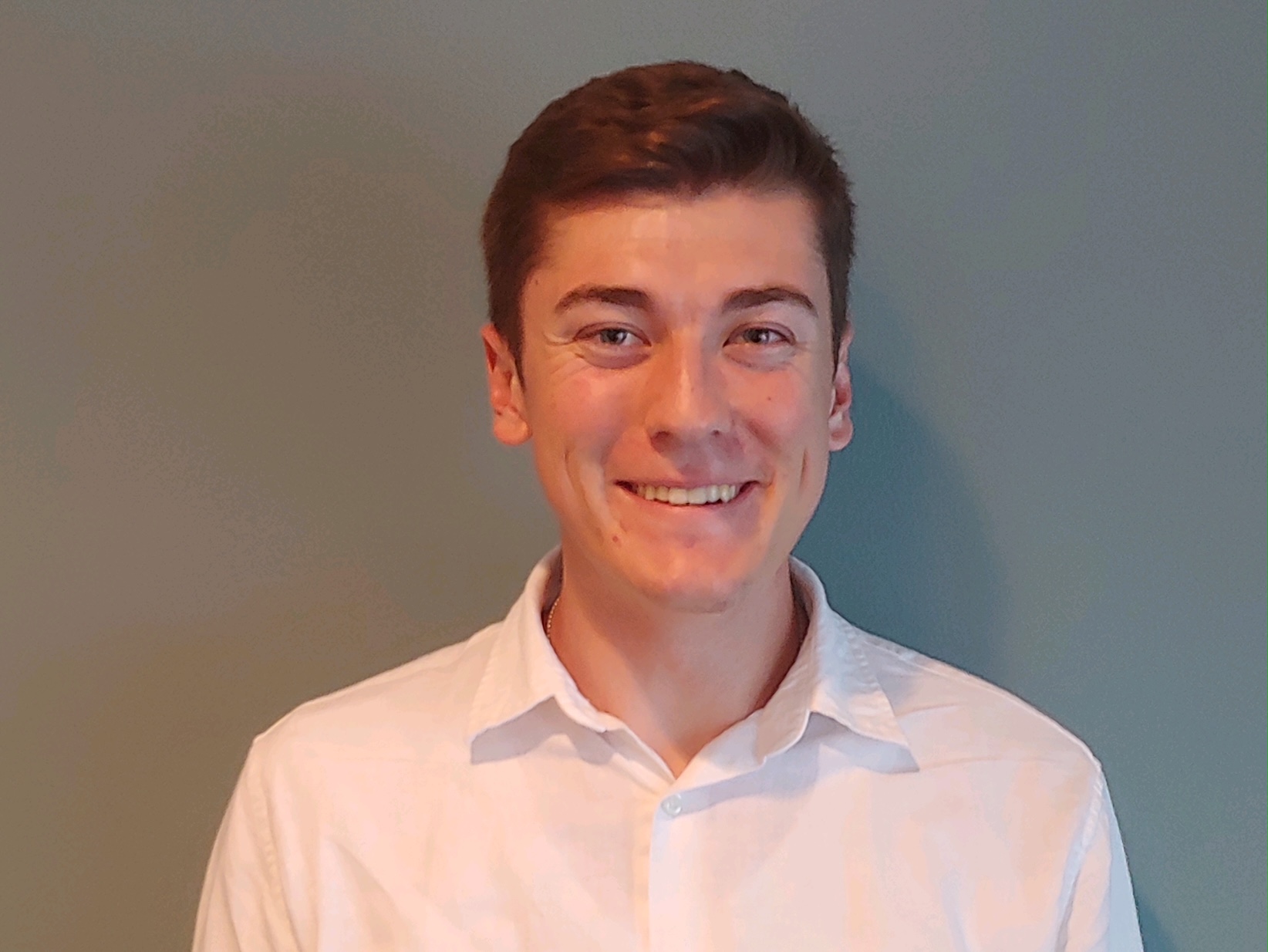Dr. Francis J. Beckwith, a former President of the Evangelical Theological Society, spoke recently at the Catholic Information Center in Washington, D.C. about his reversion to the Roman Catholic Church. The talk, part of the Fr. James V. Schall Lecture Series, centered around his wrestling with the work of St. Thomas Aquinas in his return to Catholicism. In the lecture, Beckwith explores how the teachings from his newest book, Never Doubt Thomas: The Catholic Aquinas as Evangelical and Protestant, were developed as part of his own journey back to Catholicism.
Raised Catholic, Beckwith left the church in the early 1970s. In high school, he found and began reading a copy of a New English Translation Bible. Curious about evangelicalism, he accepted an offer to begin attending a Protestant church, drawn to the seriousness of faith there.
Around this time, Beckwith encountered Aquinas. Recommended a book by theologian Norm Gleiser, whose writings discussed the Protestant angles of Aquinas’s work, he remarked that it laid the foundation for his future scholarly work and eventual shift back towards Catholicism.
Beckwith attended graduate school at Fordham University. Here he says he became a “confused but doting Thomist.” As a Catholic institution, Fordham confronted Beckwith with intellectual reasoning for returning. This was where he first encountered authors influential in his later decision to revert to Catholicism. It was also at Fordham that Beckwith met his wife, an evangelical with a more traditional background. His wife influenced his shifting views of the church, he remarked.
After graduation, Beckwith was hired by a university in Nevada to teach classes on moral and social questions. Beckwith sought out socially conservative readings and scholarship for his students, subsequently realizing that many of the authors were Catholic.
“I began appropriating more and more of Catholic thinking, but sort of indirectly through these moral and social questions,” Beckwith remarked. His wife, meanwhile, became increasingly drawn to attend more traditional Protestant churches like the Episcopal Church.
During this time, many of Beckwith’s evangelical colleagues began reverting or converting to Catholicism. This prompted discussions with both evangelicals and Catholics regarding his decision to stay in evangelicalism. One turning point was his conversation with renowned thinker Hadley Arkes.
“Hadley called me up one evening and asked me why I wasn’t Catholic,” Beckwith recalled. “So I spent about half an hour explaining to him why I wasn’t Catholic, and he said ‘those are very lame reasons.’ And I said what do you care, you’re not Catholic! He wasn’t at the time, but he is now. And he said ‘if you walk down the aisle, I will with you.’”
Conversations such as this one prompted Beckwith to dive deeper into the writings of church fathers. He noticed a trend. There was tremendous continuity among the fathers on issues that were now in dispute between Catholics and Protestants. While issues upon which the two sides agree, such as the deity of Christ, were debated and settled at councils, issues such as the Eucharist or penance were never discussed.
“Those were not ever debated, they were just presupposed as sort of true. And so to me the thing that stood out to me about the fathers is how matter-of-fact they talked about these things,” Beckwith found. In addition, Beckwith noted how Aquinas’s theological beliefs fell right in step with both the early church fathers and the spiritual leaders of the Catholic Church that followed.
Consequently, Beckwith reached a tipping point. Heavily swayed by the writings of church history and their continuity, he remarked: “It occurred to me immediately that the burden was on me, not the Church…and that I was in schism with the Church and that I needed a good reason to…remain in schism.” Because he felt Catholics could be right on these issues, Beckwith felt that he could not fulfill this burden, and decided to officially rejoin the Catholic Church. He remembers that his wife’s first reaction was “it’s about time.”
The decision became official in 2007, when Beckwith was still president of the Evangelical Theological Society. He resigned from his position and was confirmed along with his wife into the Roman Catholic Church a few months later.
Looking back, Beckwith sees the influence of Aquinas’s writing through his entire spiritual journey. Aquinas, to him, was a touchstone for his reversion. This is why he decided to publish Never Doubt Thomas in 2019. The book tackles divisions between Catholics and Protestants from a Thomist perspective in four sections: theology, reason, and natural law; the relationship between faith and works; whether the Abrahamic faiths all worship the same God; and the intelligent design movement. His central argument is that Protestants too often appropriate Aquinas’s writings without recognizing his largely Catholic theological framework.
The lesson Beckwith wanted listeners to take from his story is that “the truth is often right under our noses yet we don’t realize it.” He says this was the case for him especially with the writings of Aquinas. In closing, he encouraged listeners to honestly examine their own theological framework.






Comment by Marc on September 8, 2021 at 2:18 pm
Unfortunately, Aquinas introduced many falsehoods into Catholic theology. Original sin, immaculate conception and purgatory were either invented or espoused by Aquinas.
Comment by gsimy on September 9, 2021 at 6:24 am
this comment is so accurate that forgot that Aquinas opposed Immaculate Conception
Comment by senecagriggs on September 9, 2021 at 7:42 pm
I wonder if this is the same Catholic Church he joined in 2006. I’m thinking it is not.
Comment by Search4Truth on September 14, 2021 at 3:57 pm
Interesting comments above considering the many documented appearances of Mary using that term to describe herself, while always pointing us toward following her Son.